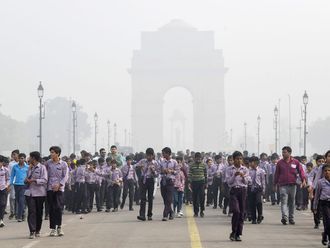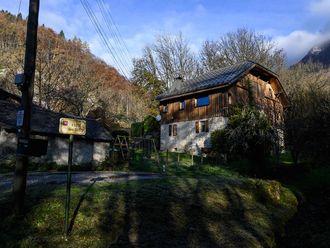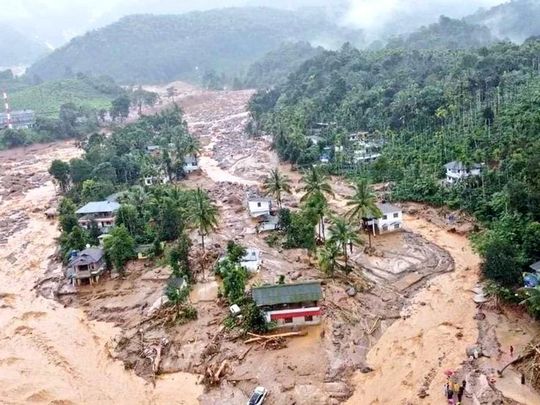
Dubai: The picturesque hamlets in Wayanad district in the southern Indian state of Kerala, once known for their beauty, are now scenes of gloom after landslides struck, killing more than 100 people and cutting them off from the rest of the state.
Hundreds more are feared trapped after three landslides hit Mundakkai, Chooralmala, Attamala, and Noolpuzha within four hours amid heavy downpour before dawn when most of their residents were asleep.
Mundakkai and Chooralmala, the worst affected areas around Vellarimala, have emerged as the epicentre of the disaster.
The landslide in Wayanad is a heart-wrenching disaster. There was extremely heavy rainfall. An entire area has been wiped out. We have recovered 93 bodies so far, but the numbers may change. There are 128 people receiving treatment for injuries. Many who went to sleep last night have been swept away.
“This catastrophe has resulted in the loss of 108 lives,” the state’s chief minister Pinarayi Vijayan said in a statement. “This is one of the worst natural calamities Kerala has ever witnessed.”
He said that 3,069 people are now in 45 relief camps in Wayanad. "There are 128 people receiving treatment for injuries. Many who went to sleep last night have been swept away,” Vijayan said.
Up to 500 houses have collapsed in the pre-dawn landslides, affecting thousands of people, according to initial estimates.
Kerala state excise minister M.B. Rajesh said more than 250 people had been rescued so far, The Hindu newspaper reported.
read more on Wayanad landslide
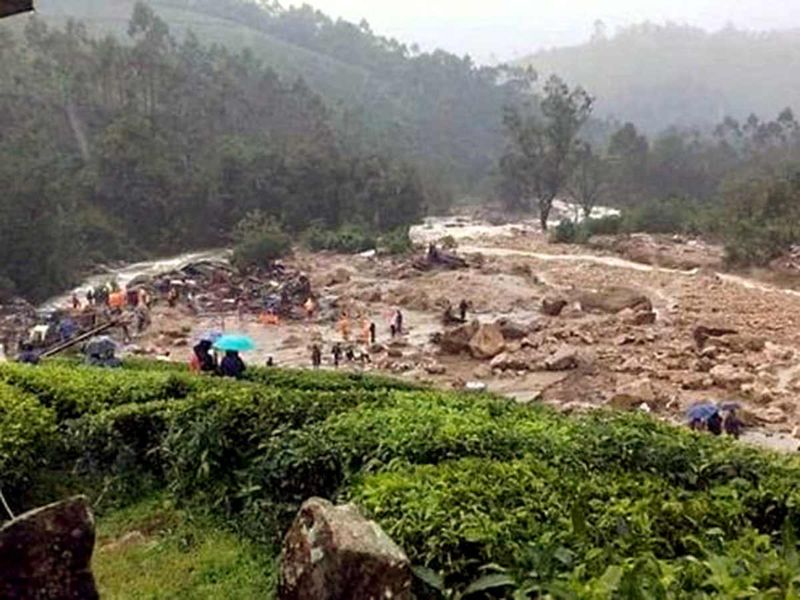
Wayanad is famed for the tea estates that crisscross its hilly countryside and which rely on a large pool of casual labourers for planting and harvest.
Images published by the National Disaster Response Force showed rescue crews trudging through mud to search for survivors and carry bodies on stretchers out of the area.
Homes were caked with brown sludge as the force of the landslide scattered cars, corrugated iron and other debris around the disaster site.
Roads and bridge collapse
India’s army said it had deployed more than 200 soldiers to the area to assist state security forces and fire crews in search-and-rescue efforts.
In a statement, the Ministry of Foreign Affairs (MoFA) expressed its sincere condolences and sympathy to the government and people of India, and to the families of the victims, as well as its wishes for a speedy recovery for all the injured. -- WAM
Multiple agencies, including the Army and Navy and National Disaster Response Force, have joined the rescue operations.
Many roads have collapsed and a bridge has been swept away and several areas have become unreachable, Health Minister Veena George told news agency ANI,
“We have to re-establish the connectivity. Helicopters will also be brought in, but the weather is bad.”
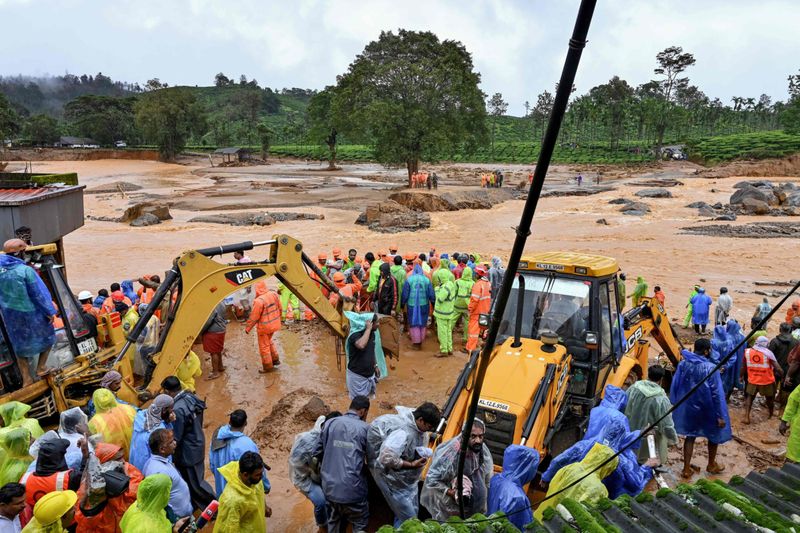
Red alert for eight districts
Amid the disaster, Kerala is bracing for more rain, as the weather office has issued a red alert for eight districts — Idukki, Thrissur, Palakkad, Malappuram, Kozhikode, Wayanad, Kannur and Kasargod districts. Four districts are under orange alert — Pathanamthitta, Alappuzha, Kottayam and Ernakulam districts.
“This catastrophe has resulted in the loss of 108 lives,” the state’s chief minister Pinarayi Vijayan said in a statement. “This is one of the worst natural calamities Kerala has ever witnessed.” He said that 3,069 people are now in 45 relief camps in Wayanad. "There are 128 people receiving treatment for injuries. Many who went to sleep last night have been swept away,” Vijayan said.
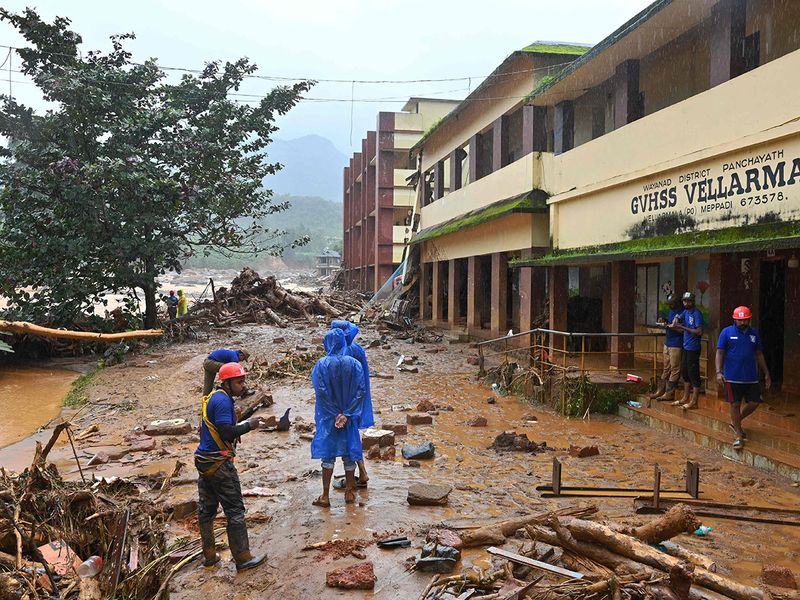
Many trapped under debris
“Many people are still trapped under the debris. We have opened 45 relief camps in Wayanad and a total of 118 camps across the state, accommodating 5,531 people. The fire force, NDRF, and police are working together. Various divisions of the Army and Navy are coordinating the rescue operations,” he added.
Prime Minister Narendra Modi has offered assistance. “Upon learning of the disaster, both the Prime Minister and Rahul Gandhi, along with various party leaders, have offered their assistance. They have assured us that we will work together to address this crisis,” he said.
“Steps have been initiated to deliver food and essential supplies. Two vehicles carrying 20,000 litres of drinking water will arrive at the disaster area. Health workers currently on leave are instructed to return to duty immediately. Nothing can replace the loss of loved ones or possessions, but we must extend our support and lift those affected, “ he added.
“More assistance is needed to rebuild the region. I urge everyone to contribute to the Chief Minister’s Disaster Relief Fund (CMDRF) and provide support. Those who can should make donations. The arrival of unnecessary vehicles is causing significant blockages and must be strictly avoided. Everyone must be prepared to cooperate,” he said.
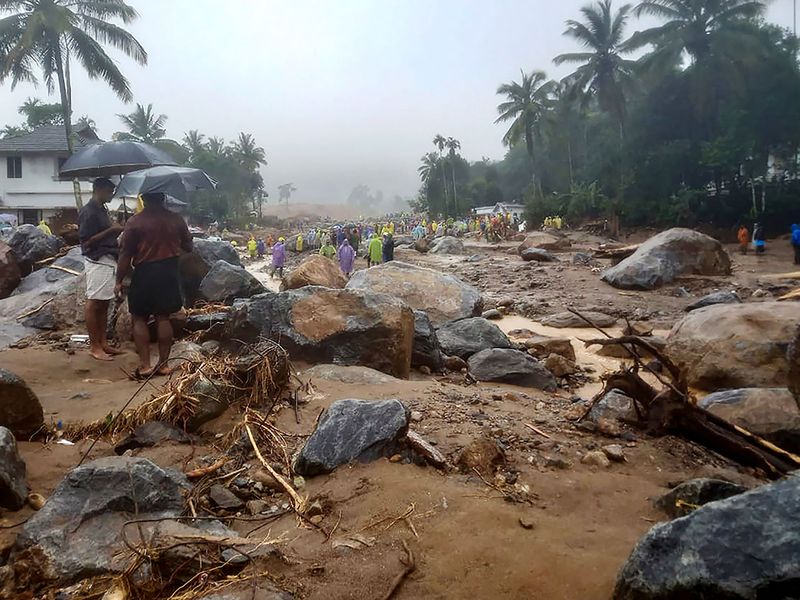
‘Alarming rise in landslides’
Indian opposition leader Rahul Gandhi, who until recently represented Wayanad in parliament, told lawmakers that the scope of the devastation was “heartbreaking”.
“Our country has witnessed an alarming rise in landslides in recent years,” he said. “The need of the hour is a comprehensive action plan to address the growing frequency of natural calamities.”
Monsoon rains across the region from June to September offer respite from the summer heat and are crucial to replenishing water supplies.
They are vital for agriculture and therefore the livelihoods of millions of farmers and food security for South Asia’s nearly two billion people.
But they also bring destruction in the form of landslides and floods.
The number of fatal floods and landslides has increased in recent years, and experts say climate change is exacerbating the problem.
“The number of extremely heavy rainfall days have increased,” Kartiki Negi of Indian environment think tank Climate Trends told AFP.
“The atmosphere is quite disturbed,” she said. “Thus we see more and more extreme events these days.”
Damming, deforestation and development projects in India have also exacerbated the human toll.
Intense monsoon storms battered India this month, flooding parts of the financial capital Mumbai, while lightning in the eastern state of Bihar killed at least 10 people.
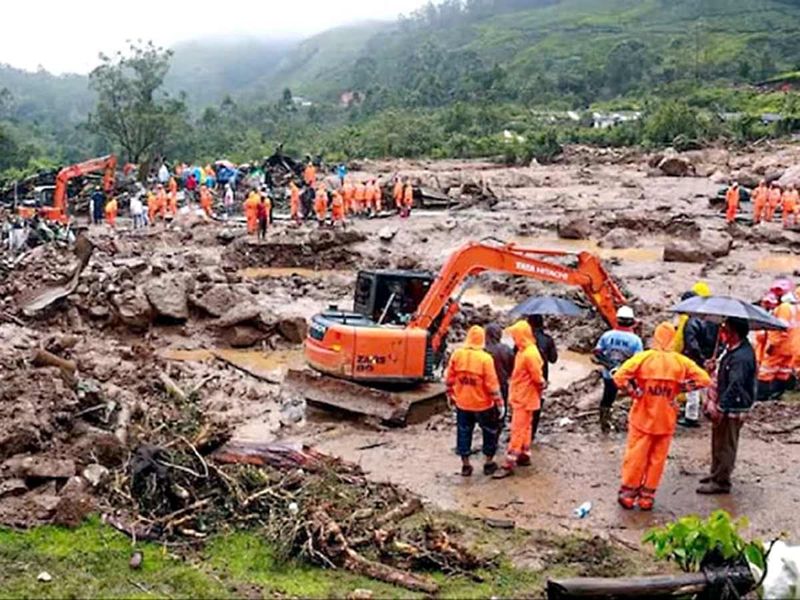
In 2018, devastating floods had killed more than 500 people across the state destroying homes, forested areas and infrastructure, with damage estimated in the billions of dollars.
The state is well equipped to deal with extreme monsoon and has set up operation centers as a preparedness measure, said Indu K. Murthy, sector lead for climate at the think tank Center for Study of Science, Technology and Policy. But beyond that, the area needs more resilient infrastructure, in addition to innovative measures such as flood insurance, she told Bloomberg.
“Extreme rains are projected to intensify across India and over the Western Ghats from Kerala to Maharashtra,” according to Roxy Mathew Koll, a climate scientist at the Indian Institute of Tropical Meteorology in Pune. “Roughly half of Kerala are hills and mountainous regions where the slope is more than 20 degrees and hence these places are prone to landslides when heavy rains occur.”
Kerala has already mapped landslide prone areas but hazardous places should be identified and their residents sensitized, he said. “We need to monitor rainfall data in these hotspots and prepare early warning systems targeted at hazard-prone areas,” Koll was quoted as saying by Bloomberg.





